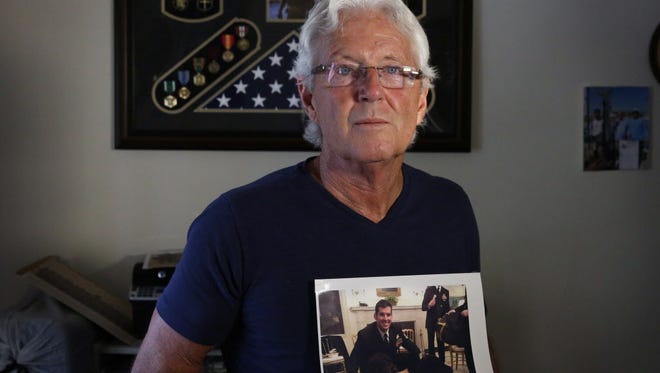Yemen raid needs answers: Our view
A commando died, three were wounded, a $75 million aircraft was lost, and dozens of civilians were reportedly killed.
The rugged, 6-foot-4-inch American commando shot to death two months ago during an ill-fated U.S. military raid in Yemen had survived a dozen deployments, earning Silver and Bronze Stars and a Purple Heart. The courage and dedication of Navy SEAL William "Ryan" Owens is unquestioned, which is more than can be said for the never-own-up-to-anything White House that sent him on his mission.

President Trump gave the go-ahead for the raid after meeting with Defense Secretary James Mattis, a retired Marine Corps general, and Gen. Joseph Dunford, chairman of the Joint Chiefs of Staff, over dinner — Trump's first exposure to the grim Oval Office duty of sending young Americans into harm's way.
The SEAL Team 6 members wound up in a 50-minute gunfight with al-Qaeda terrorists and local tribesmen in the middle of the night in a village of mud-brick houses. Owens, 36, died, three servicemembers were wounded, a $75 million aircraft was lost, and dozens of civilians were reportedly killed. There were also reports that al-Qaeda cellphones and computer files filled with valuable intelligence were scooped up.
But when questions began to be raised — particularly by Owens' father — about the success of the mission, Trump was gently pressed about it during an appearance on Fox & Friends on Feb. 28, and his resolve to stand by his approval of the raid collapsed like a house of cards.
Don't investigate Yemen raid: Opposing view
"This was a mission that was started before I got here. This was something that was, you know, they wanted to do ... the generals, who are very respected," the president said. "And they lost Ryan."
So much for where the buck stops.
If the nation has learned anything in 16 years of war, it's that things can go very wrong, very fast in the battlefield. No matter how well-planned the mission or how skilled the fighting force, the enemy always gets a vote. Military investigations of the Yemen raid are underway, and several crucial questions need to be answered:
- When the mission team of two dozen American and Emirati commandos entered the village, militants there — even the women — were armed and on high alert. Why didn't the U.S. commanders anticipate this?
- How many civilians were killed during the raid, and to what extent did this damage relations with the government of Yemen?
- How did the effort to evacuate the besieged commandos go so wrong? An Osprey lost power and struck the ground, leaving three servicemembers injured.
Senior military leaders insist that good intelligence was gathered, information desperately needed after U.S. advisers were forced out of Yemen in 2015 and lost intelligence sources. Moreover, leaders say, the attack disrupted the al-Qaeda affiliate so that its commanders were successfully targeted in U.S. airstrikes that followed. Maybe the mission was worth the risk, and the cost, falling somewhere in the gray area between success and failure.
Either way, the president should stand by his decisions and not publicly fob them off on someone else. He's in charge now, and there will almost certainly be more tough choices in the future.
USA TODAY's editorial opinions are decided by its Editorial Board, separate from the news staff. Most editorials are coupled with an opposing view — a unique USA TODAY feature.
To read more editorials, go to the Opinion front page or sign up for the daily Opinion email newsletter. To respond to this editorial, submit a comment to letters@usatoday.com.